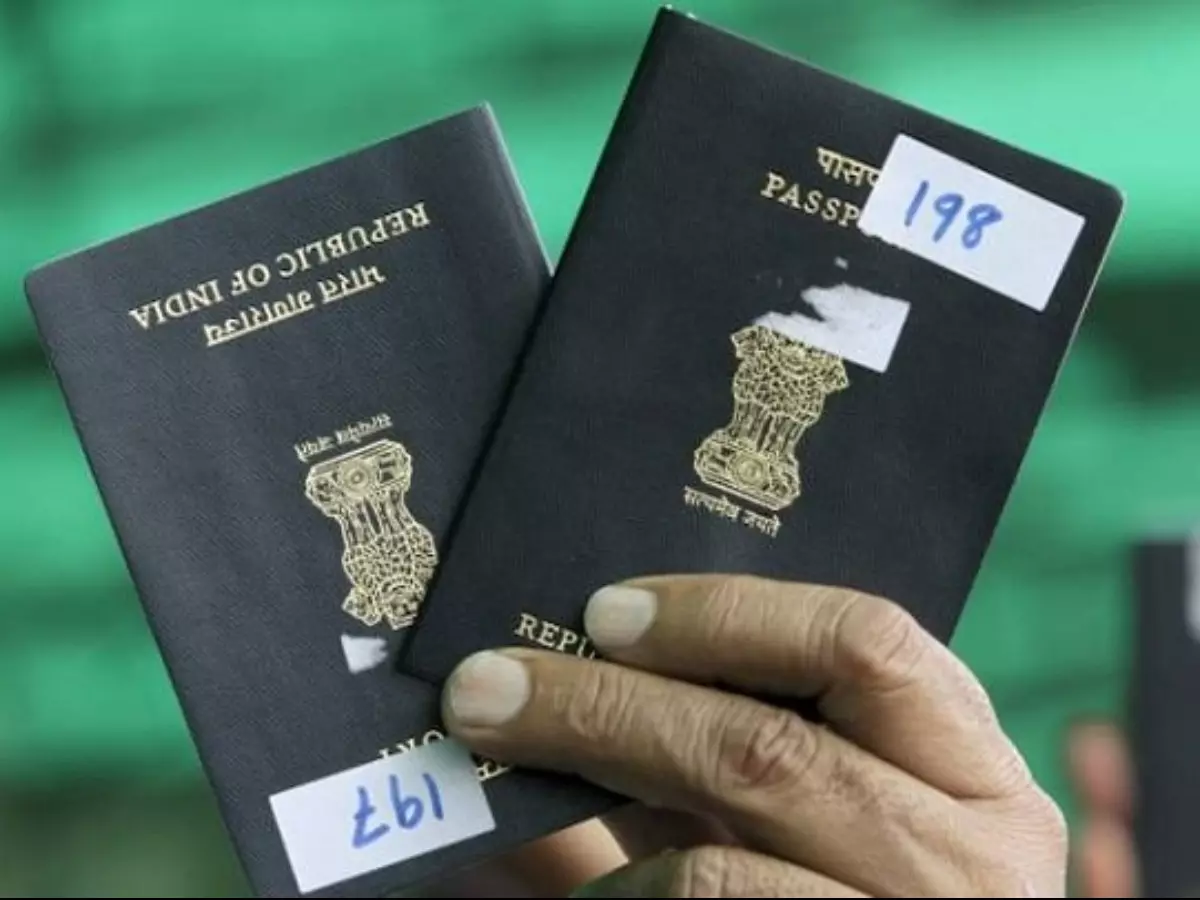Explained: What Is e-Passport Service And How Will It Work For Applicants
On January 7, the Ministry of External Affairs and Tata Consultancy Services Limited inked a deal for the second phase of the Passport Seva Programme (PSP), one of the Government of India's Mission Mode Projects (MMPs). The most recent agreement will pave the way for PSP-V2.0, the second phase of the programme.

On January 7, the Ministry of External Affairs and Tata Consultancy Services Limited inked a deal for the second phase of the Passport Seva Programme (PSP), one of the Government of India's Mission Mode Projects (MMPs). The most recent agreement will pave the way for PSP-V2.0, the second phase of the programme.
The $1 billion agreement will focus on delivering passports to citizens faster and establishing a more effective integration between various government wings, such as the MEA and local police networks, so that they can work together for applicant verification and quick tracing in the event of an emergency.
What distinguishes the new passport initiative programme from others?
Manual sections of the current passport application and processing are likely to be replaced with digital sections in the new phase. PSP-V2.0 is a "continuation and enhancement" of PSP-V1.0, according to the Ministry of External Affairs.
 Agencies
Agencies
According to an official release, the new project aims to create a "transparent, more accessible, and reliable" digital platform that would be backed by a trained workforce.
This will result in the creation of a cutting-edge digital ecosystem, as well as the overhauling of existing processes and the integration of multiple government departments involved in passport issues. However, the issue of employee training in the new method has still to be addressed, which will take some time.
What will PSP-V2.0 bring to the table?
The usage of the newest biometrics technology, Artificial Intelligence, Advance Data Analytics, Chat-Bot, Auto-response, Natural Language Processing, and Cloud Enablement are likely to be part of the new program's technology enhancements.
 Unsplash/Representational image
Unsplash/Representational image
The issue of the new generation of passports known as e-passports will be the PSP-newest V2.0's feature. New and renewed passports will be equipped with a microchip containing all biometric data about the applicants.
In a social media message, Sanjay Bhattacharyya, the Secretary of the Ministry of External Affairs in charge of passport services, claimed that next-generation e-passports will simplify immigration processes around the world and boost digital security for passport holders.
How will the new e-passports differ from traditional passports?
At immigration counters, current passports are scanned to display the trip history of the citizen who is using the same document, and the e-passport is expected to accomplish the same role.
 Representational Image
Representational Image
Unlike existing passports, however, e-passport holders will have their biometric data physically stored in a chip, reducing the danger of data leaking.
What will TCS's role be in the partnership?
According to the MEA, Tata Consultancy Services will take care of "support functions" such as "citizen interface, technology backbone, call centres, training, and change management."
In the process of granting passports, the government will carry out "all sovereign and security-related functions." The government will hold strategic assets such as data centres, databases, and application software, with access controlled via biometrics.
A Data Centre, Disaster Recovery Centre, and Government Secure Repository are also planned for the initiative, which will be connected to all Passport Seva Kendras and Post Office Passport Seva Kendras (POPSK).
 Reuters
Reuters
The total system will be linked to all Indian diplomatic missions across the world, allowing for monitoring and oversight via a state-of-the-art Network Operation Centre and a Security Operation Centre (SOC).
¡°The programme has recently been connected to more than 176 Indian Missions/Posts through Global Passport Seva Programme (GPSP), providing seamless delivery of passport services to the Indian diaspora,¡± said the MEA in a statement.
However, a public-private cooperation is essential to alleviate the shortage of government staff in passport offices across the country. The declaration stated that the government is planning to open Seva Kendras in all of the country's Lok Sabha seats.
However, according to employees in the Passport division, there are still a huge number of openings in government posts in these offices, and a full range of "monitoring and supervision" will necessitate more government personnel.
These openings have yet to be filled, despite the government's aggressive expansion plan. A Passport Officer has yet to be assigned to any of the 36 existing passport offices.
Is this cooperation devoid of flaws?
Since 2008, the MEA-TCS partnership has been a part of the passport process, assisting in the increased digitisation of a complicated procedure that involves various stakeholders from throughout the broad government network.
However, it is acknowledged that more cooperation between the public and private sectors will aid residents in applying for and obtaining passports without experiencing delays or denials.
